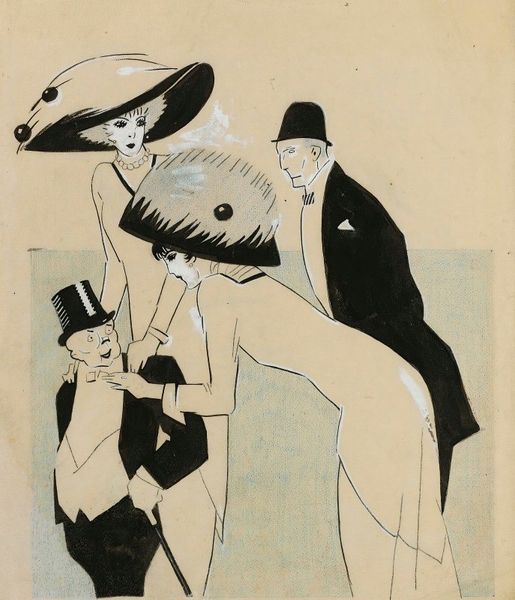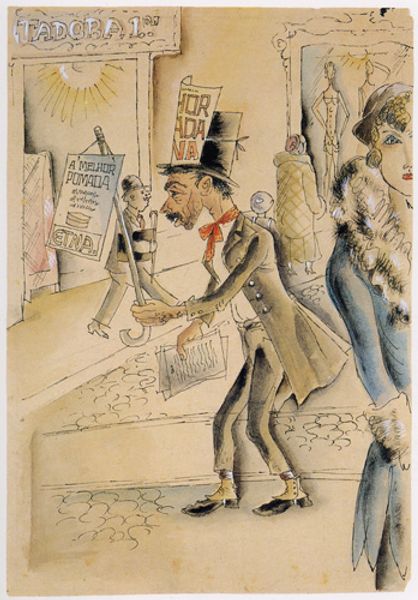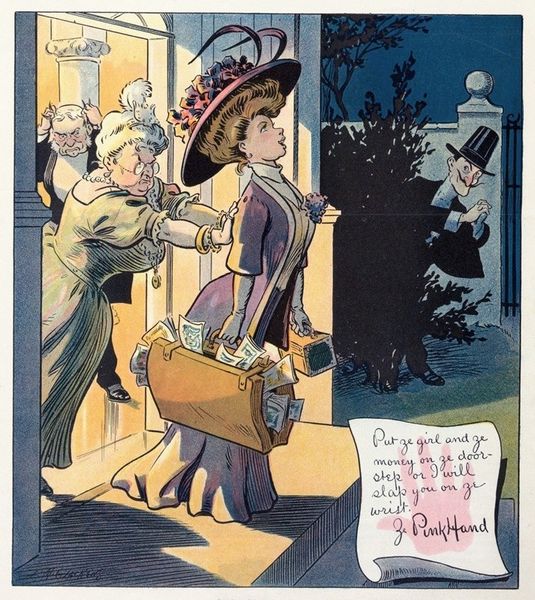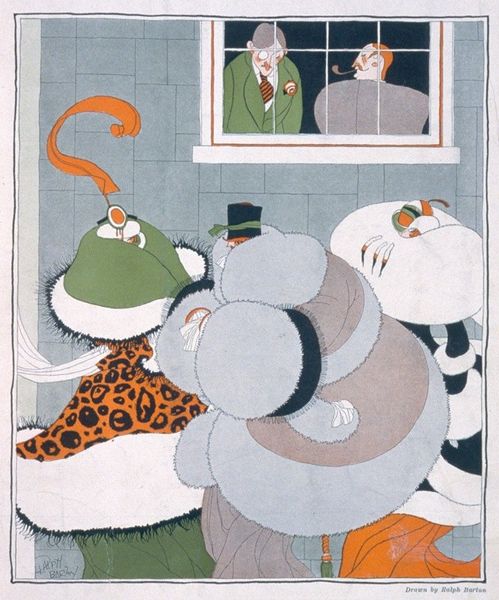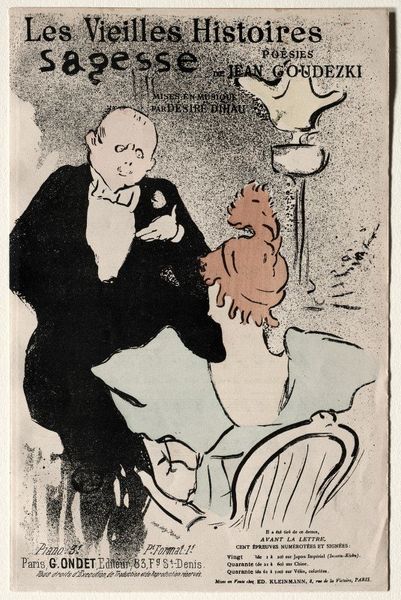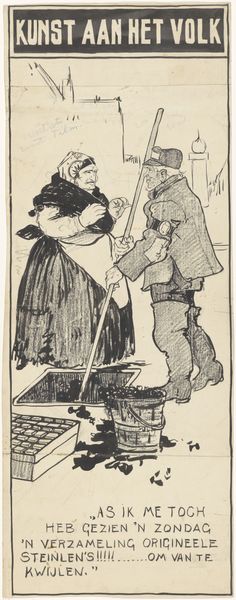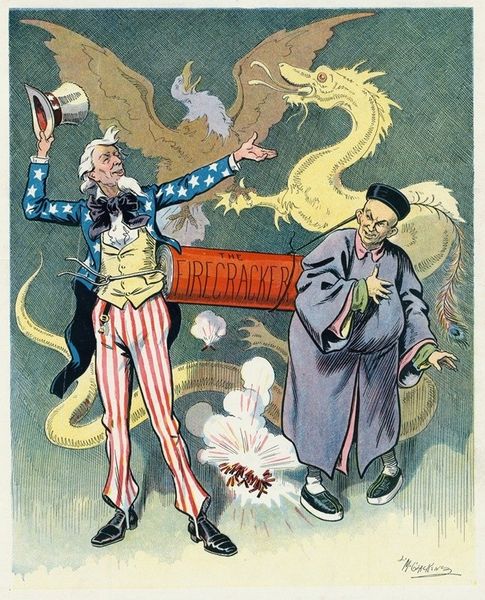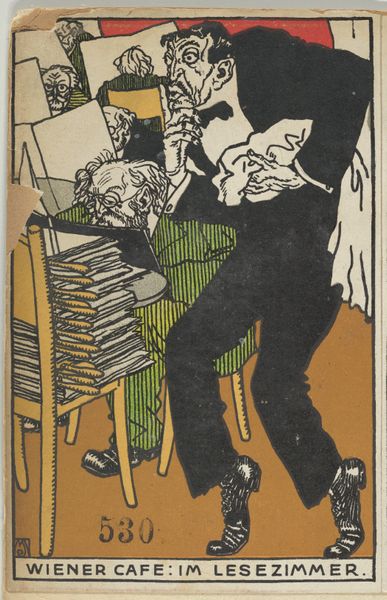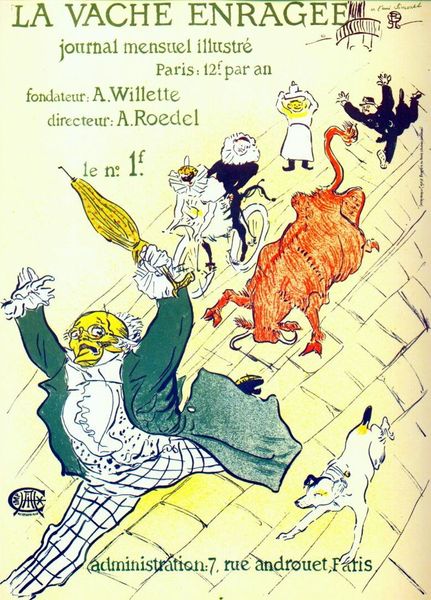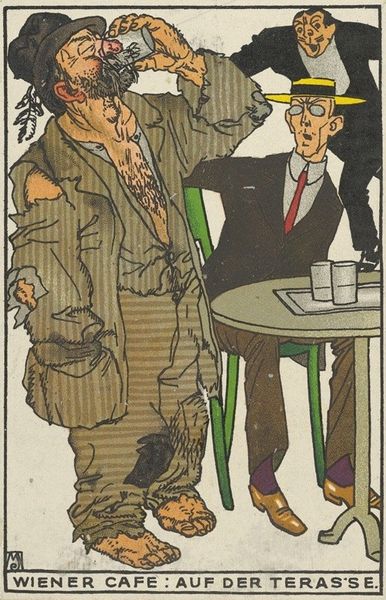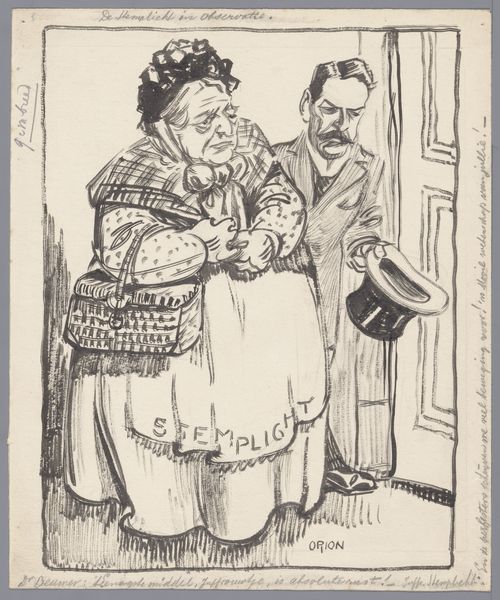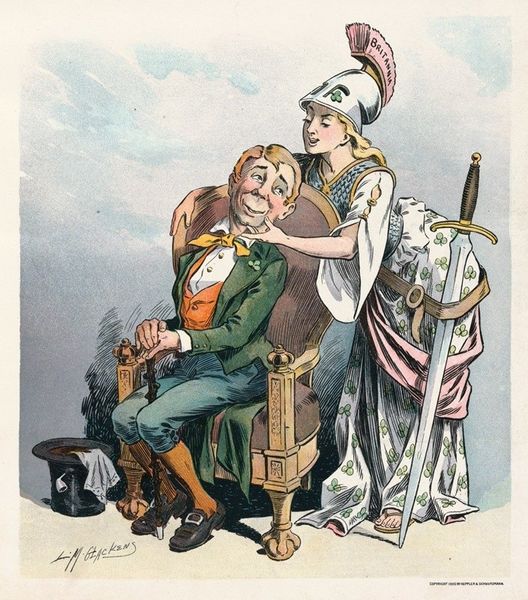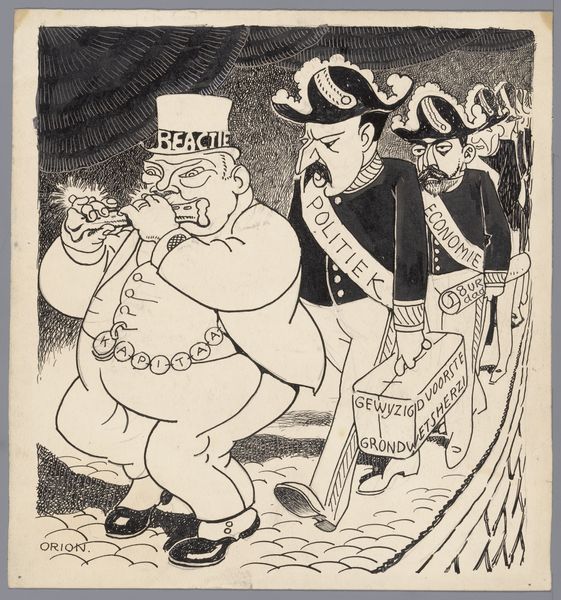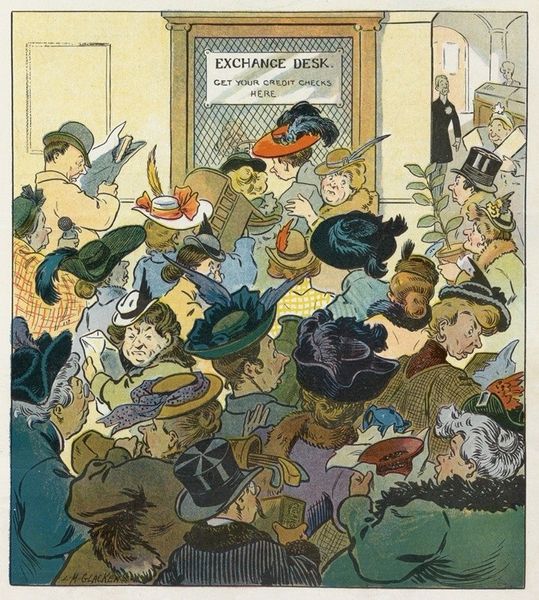
#
portrait
# print
#
caricature
#
caricature
#
naive art
#
genre-painting
#
portrait art
#
modernism
Copyright: Public Domain: Artvee
Louis Glackens made this chromolithograph, probably in the early 20th century, using stones to apply multiple layers of ink to paper. This was an industrial printing process, allowing images to be reproduced quickly and cheaply. It shows President Taft locked in an embrace with an elephant, the symbol of the Republican party, here dressed in a gown labeled "GOP". Note the tears in the elephant's eyes. Taft holds up a framed portrait of Theodore Roosevelt, implying a rejection of his predecessor. The flat planes of color and bold outlines were typical of mass media images at the time. Such prints were designed to be widely distributed and consumed, shaping public opinion through accessible imagery. Glackens, as a commercial artist, understood the power of this medium to communicate political messages. Chromolithography democratized image-making, bringing art and political commentary to a broad audience. The choices of materials, processes, and subject matter all contribute to the work's impact as a snapshot of a specific political moment.
Comments
No comments
Be the first to comment and join the conversation on the ultimate creative platform.
